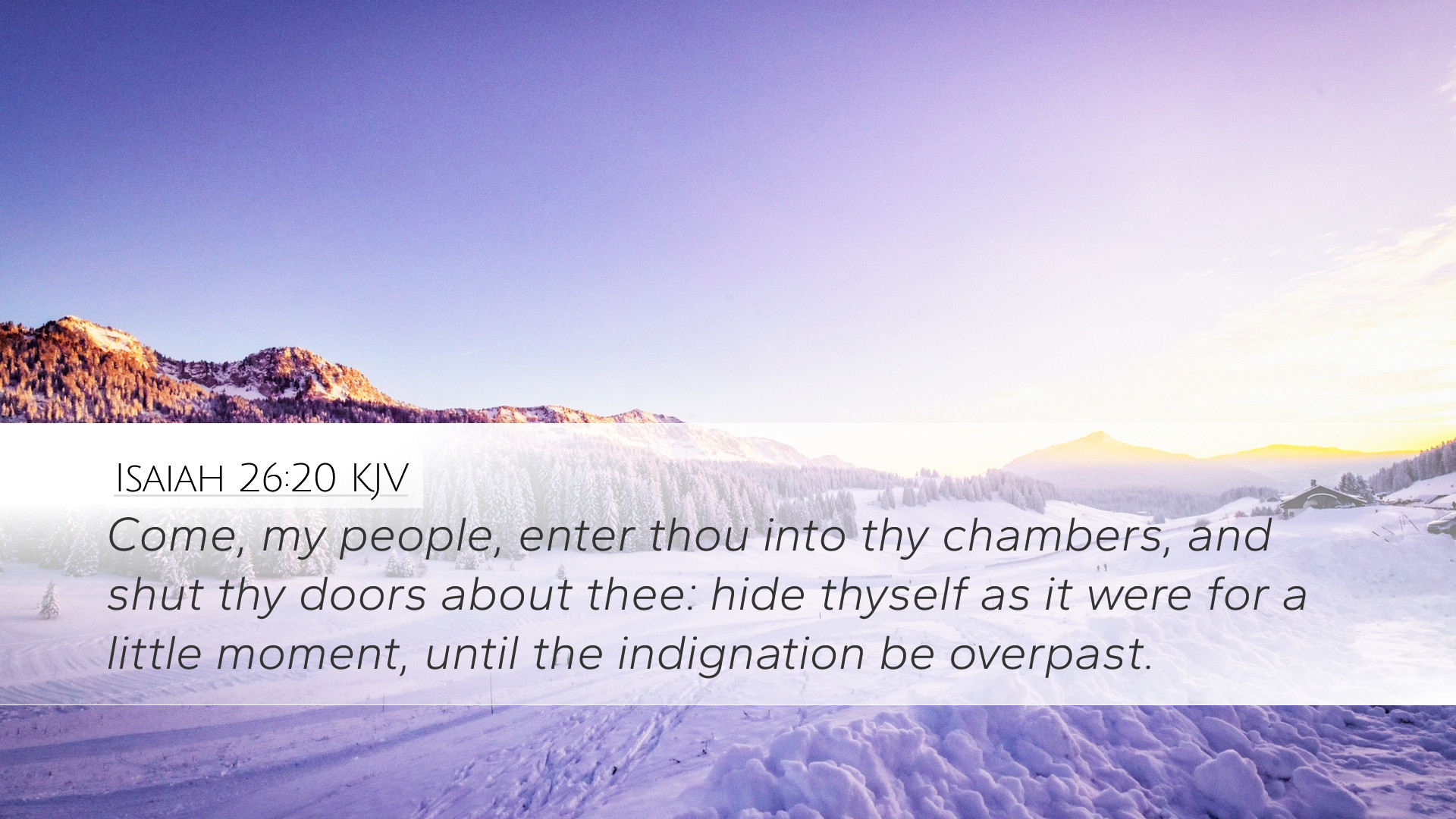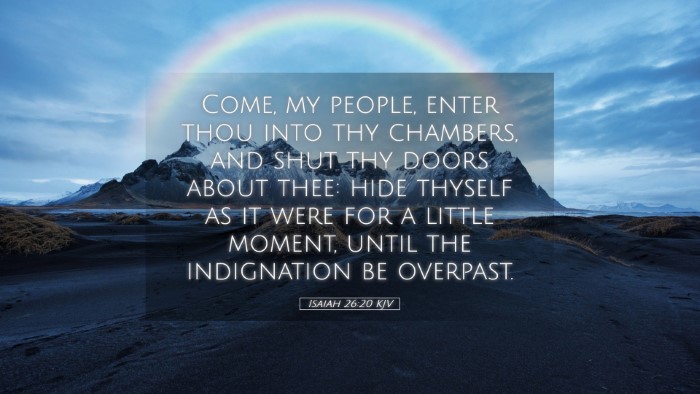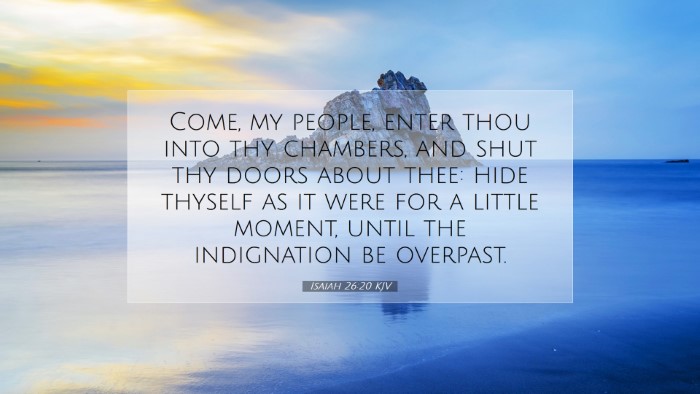Bible Commentary on Isaiah 26:20
Verse: Isaiah 26:20 - "Come, my people, enter thou into thy chambers, and shut thy doors about thee: hide thyself as it were for a little moment, until the indignation be overpast."
Introduction
This verse of Isaiah encapsulates a profound moment of divine instruction amidst tumultuous times. It presents a metaphorical call for refuge and safety in the Lord during moments of divine judgment. The imagery used here serves multiple layers of meaning, resonating deeply with themes of salvation, protection, and hope.
Contextual Background
Isaiah, often called the "Messianic Prophet," addresses both immediate historical circumstances and future prophetic insights. In Isaiah 26, we see a shift towards comfort and hope for the faithful amidst the impending judgment on Judah and the surrounding nations. The chapter is a poetic reflection of trust in God and a promise of deliverance, contrasting the fate of the righteous with that of the wicked.
Commentary Insights
Matthew Henry
Matthew Henry emphasizes the protective nature of this invitation. He notes that the "chambers" symbolize a place of divine safety—akin to the concept of a shelter. Here, God's people are urged to retreat into safety and wait for the divine plan to unfold.
- Spiritual Retreat: Henry interprets the chambers as a call for believers to enter into a time of prayer and communion with God, shutting out external chaos.
- Trust in God: He emphasizes faith in God's justice, suggesting that the indignation refers to God's judgment against sin, yet assures that the righteous will eventually be vindicated.
Albert Barnes
Albert Barnes offers a practical viewpoint, suggesting that the call to "hide" means to seek refuge in God during times of distress. He focuses on the idea of divine protection, interpreting the hiding as an act of faith. According to Barnes:
- Confidence in Judgment: The "little moment" signifies that divine judgment, though severe, is temporary. This highlights the hope inherent in God’s promises for deliverance.
- Preparation for Tribulation: Barnes argues the necessity for believers to prepare spiritually for both trials and divine visitation.
Adam Clarke
Adam Clarke's commentary delves into the original Hebrew terms and their implications. He elaborates on the social and spiritual exile experienced by the faithful during times of trial and how retreating into the chambers serves as both a physical and spiritual act of submission to God’s will.
- Hiding Place: Clarke states that the chambers represent not only literal refuge but also the soul's retreat into God’s presence, which brings peace amidst turmoil.
- The Temporary Nature of Trials: He echoes the sentiment that the "indignation" is a transient phase, encouraging believers to wait with expectation for God’s mercy and restoration.
Theological Implications
This verse encapsulates several key theological themes that are vital for pastoral and scholarly reflection:
- Divine Protection: The call to enter the chambers speaks to the larger biblical theme of God as a refuge for His people (Psalm 46:1).
- Faith During Judgment: It highlights the necessity of faith during times of retribution where God’s justice is enacted upon the wicked.
- Hope in Tribulation: The promise that "indignation" is temporary reinforces the hope found in God’s character and covenant.
Application for Believers
Isaiah 26:20 serves as a powerful reminder for modern believers:
- Seek Refuge in God: In times of personal or communal distress, believers are encouraged to retreat into prayer, worship, and the Word.
- Trust God's Timing: Understanding that trials are temporary encourages patience and perseverance in faith.
- Share the Hope: As pastors and leaders, it is imperative to communicate the hope found in God’s promise of protection to congregations experiencing hardship.
Conclusion
Isaiah 26:20 remains a profound source of comfort and instruction. By examining the insights of renowned commentaries, we see a unified message of hope, purpose, and refuge found in God. As we meditate on this verse, may it inspire deeper trust and reliance on the divine presence that shields and sustains us through every storm of life.


